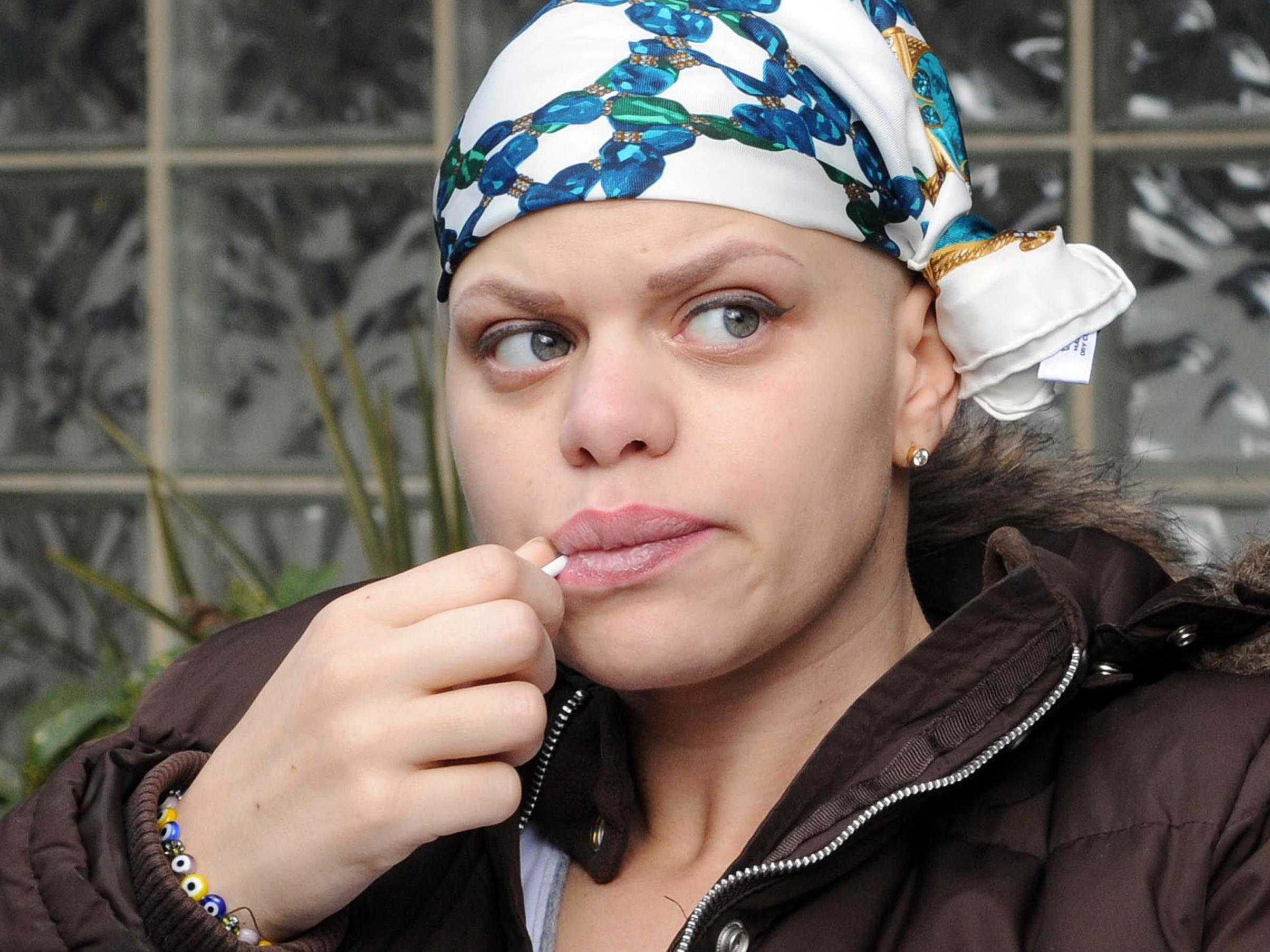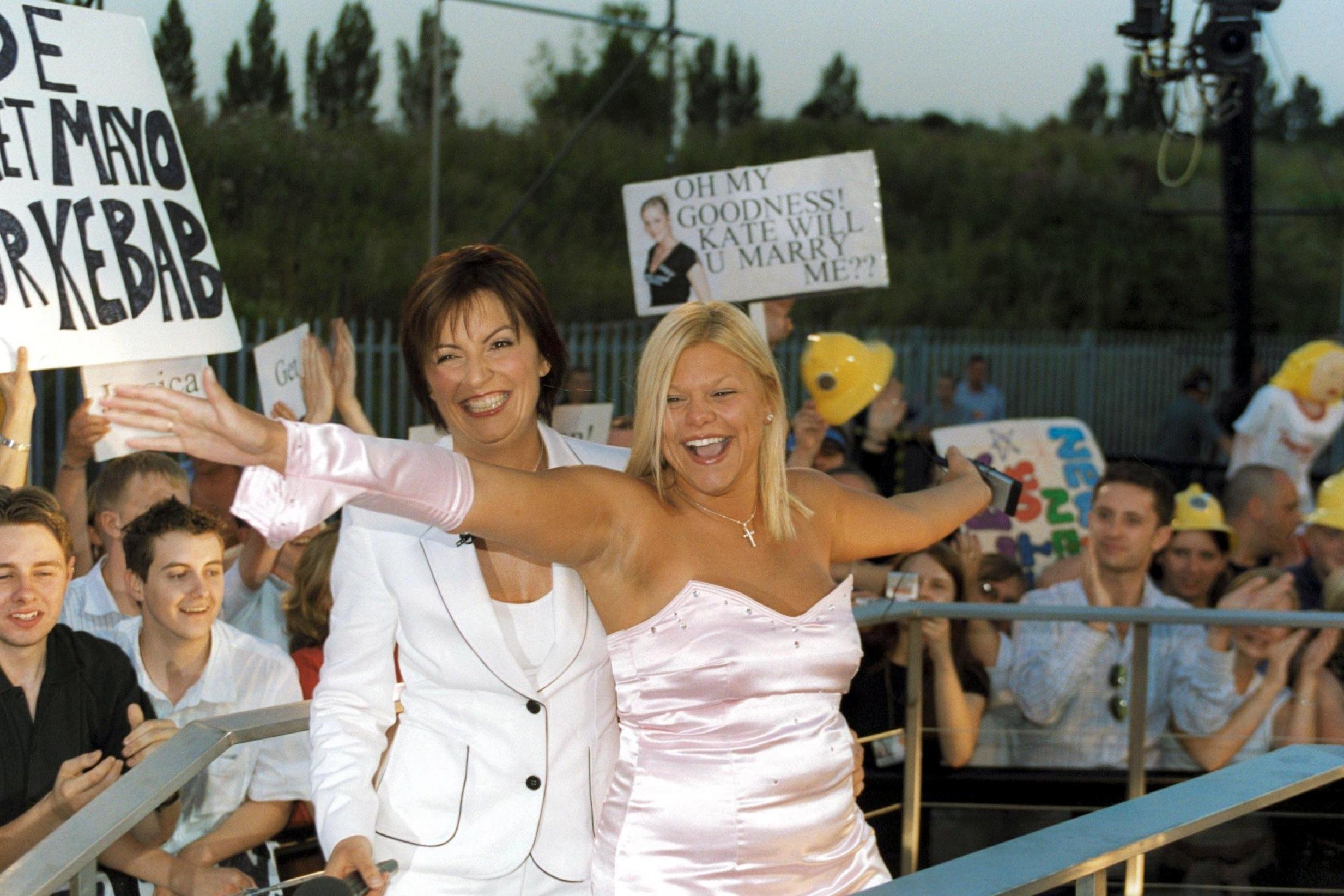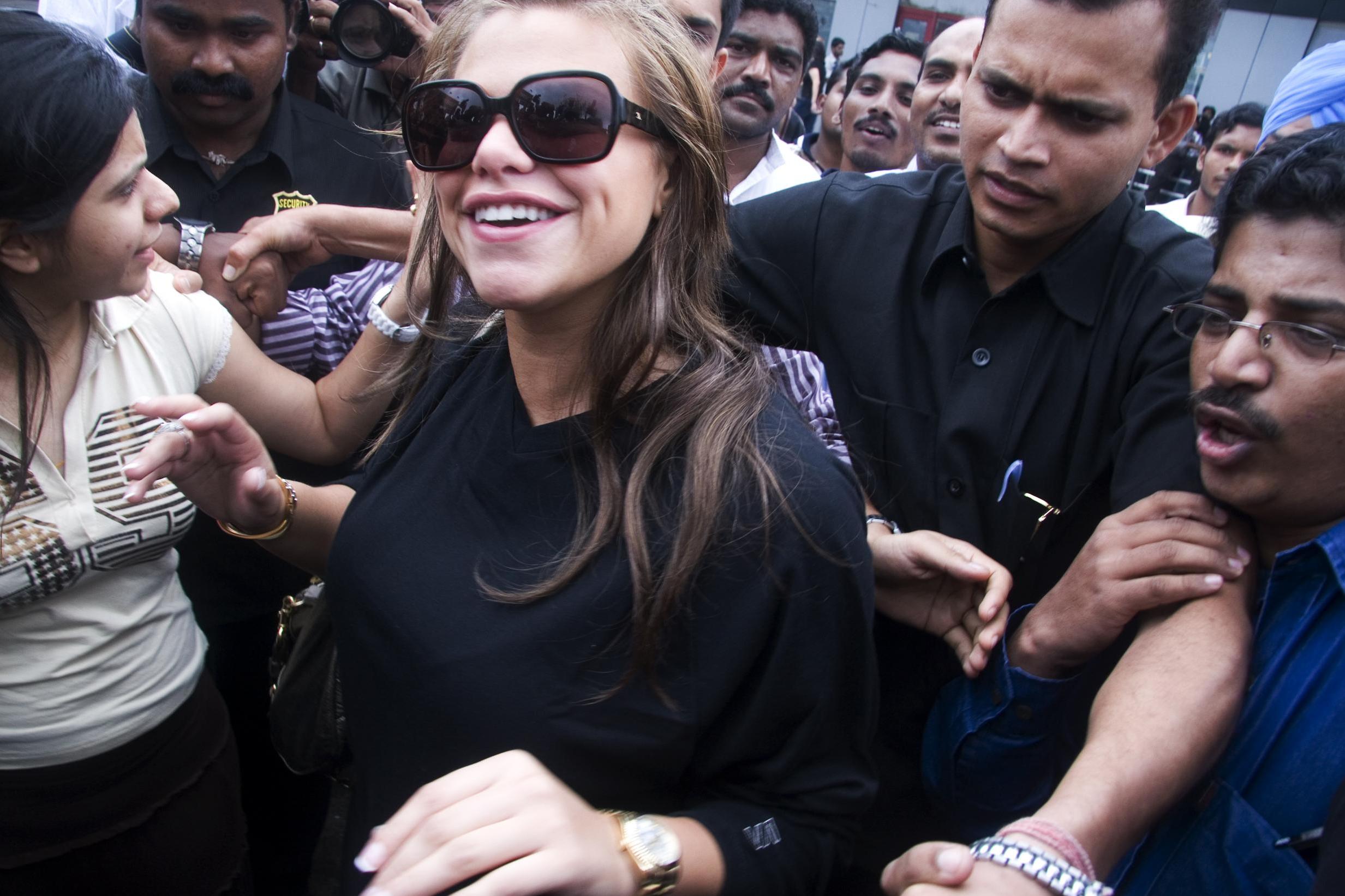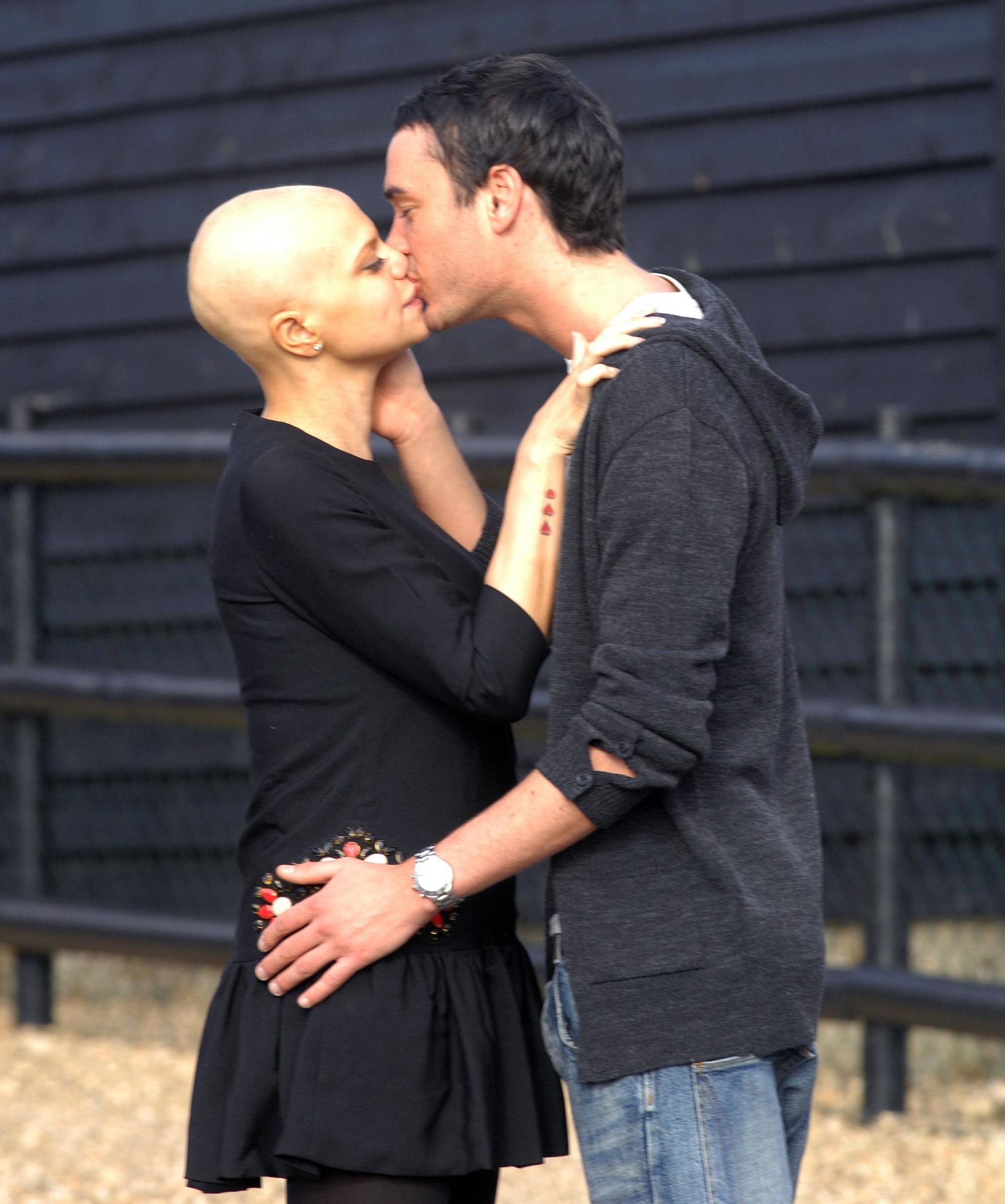Deborah Orr: Surely it is time to look away as Jade struggles with cancer
As Jade Goody confronts reality, her plight is now too real for our titillation. Deborah Orr wrote this article in 2009

Your support helps us to tell the story
From reproductive rights to climate change to Big Tech, The Independent is on the ground when the story is developing. Whether it's investigating the financials of Elon Musk's pro-Trump PAC or producing our latest documentary, 'The A Word', which shines a light on the American women fighting for reproductive rights, we know how important it is to parse out the facts from the messaging.
At such a critical moment in US history, we need reporters on the ground. Your donation allows us to keep sending journalists to speak to both sides of the story.
The Independent is trusted by Americans across the entire political spectrum. And unlike many other quality news outlets, we choose not to lock Americans out of our reporting and analysis with paywalls. We believe quality journalism should be available to everyone, paid for by those who can afford it.
Your support makes all the difference.“Human kind,” T S Eliot wrote in “Burnt Norton”, “cannot bear very much reality”. But that was back in the day, before reality television was unleashed on an eager culture. Now, it appears, there is an insatiable appetite for reality, as long as that reality is somebody else’s.
Jade Goody’s reality is that she has been diagnosed with cancer, but has not responded to treatment. Her hopes of survival are slender. The 27-year-old, understandably, describes this reality as “a nightmare”.
If Goody had never taken part in the Channel 4 reality show, Big Brother 3, if she had never parlayed her exposure into a lucrative career as a celebrity, if she had never been heard of beyond her private ambit, it is probable that this nightmare would still be facing her. Goody first endured medical intervention at 16, when pre-cancerous cells were detected in her body. Last year, she fearfully ignored a letter that warned of abnormalities, and was told she had cancer on television, last August, while she was taking part in Indian Big Brother.

Would it be any less terrible, the calamity that has befallen this mother of two, if she were not so high-profile? No, it would not be. Do they have a point then, those who suggest that this misfortune illustrates the shortcomings in NHS cancer treatment? Maybe. Though the shortcomings of expecting celebrity travail to promote social debate are surely more apparent.
Goody, since she was 21, has been a human engine for the generation of “discussion”. Were the journalists reviling her as a pig and a fool, guilty of snobbery and class hatred? Did her childhood, looking after a disabled mother and coping with drug-addicted parents, damage her? Was she being a racist on Celebrity Big Brother, or was she being a bully? Should she have got that boob job? Wasn’t her outfit vile? Why was she being showered with all that money? What was she actually for?
Jade Goody was, and is, for populist light entertainment. Yet there is no populist light entertainment in watching a young woman succumb to metastasising cellular chaos. That’s why it is so disturbing, the continued release of intimate detail into the public domain, the refusal to look away. The fun has stopped now, if any of it was ever fun at all. (Or it should have. Hateful jokes about Goody are still doing the cyber-rounds, even now.)

Goody has always been a victim, and has always been a survivor. That is her unique selling point, her “narrative arc”. Few can miss the irony in her present situation because “victim” and “survivor” are the two coins of cancer’s fateful currency. Goody’s ability to shake off vicious insult, and plough through wounding criticism, has kept her in the public eye.
After her childish taunts of the Bollywood star Shilpa Shetty were broadcast on Channel 4, to furious complaint, Goody had to go into hiding. Her windows were smashed. Death threats were issued. She was revealed as tearful, repentant, sorry, willing to learn, to change. Her career survived, and she prospered, as controversial and divisive a figure as ever.
What exactly is that career? The pat phrase, usually delivered with contempt, is that Goody is “famous for being famous”. Yet no other ordinary member of the public has converted simple exposure into riches and fame in quite the way that Goody has. What marks her apart?

A piece of advice is doled out to apprehensive people all the time, especially when they face a new and exposing situation, or meet strangers. “Just relax and be yourself”, they are told, as if this is the most simple thing in the world. The advice would not have to be dealt out so regularly, if just relaxing and being yourself was a walk in the park. If Goody has a talent for anything, it is her quite astounding ability just to relax and be herself.
In 1964, when television was still a comparatively restrained and high-minded medium, ITV screened the documentary Seven Up! It depicted the lives and opinions of 14 children, as an exploration of class in Britain. Since then the participants have been revisited every seven years, and new films have been made of their progress.

The sociological intent is to gauge how much class and background dictates the future. The films are compelling, and much admired. Goody, at times, has been treated with similarly scientific interest. Except that the Goody experiment is not controlled, and there is always access to her life. It’s not once every seven years. Access to her life, is her living.
Another Channel 4 reality show broadcast its first episode this week. Unbelievably, it placed two groups of children, some only eight years old, in accommodation away from their parents, where they had to fend for themselves. Next week, the children, already weeping and fighting and eating sporadically, will be given money, to see how they get on at the shops.
I think that what has happened with Goody is similar. Nobody said: “Let’s give this poorly educated, neglected, ungainly, crude, undisciplined young woman some wealth, then follow her around relentlessly, and see what comes next.” That just occurred spontaneously, from the heart of the cultural milieu, without orchestration, or the pretence of ethical debate.
The fact that Goody wanted so desperately to stay on that treadmill, well, that was just part of the existential joke of it all. Yet even now, especially now, it is impossible to suggest that Goody ought to have chosen her wiser options. Wisdom was never part of her lexicon.
The most ghastly aspect of her present predicament is that it exposes so pitilessly how inexorable Goody’s fate has always been. Suffering befalls the scrutinised, just as it does everyone. But it is grotesque when a person whose life has been bought and sold as soap opera, learns that the script is inescapable, and millions are still watching.
Join our commenting forum
Join thought-provoking conversations, follow other Independent readers and see their replies
Comments